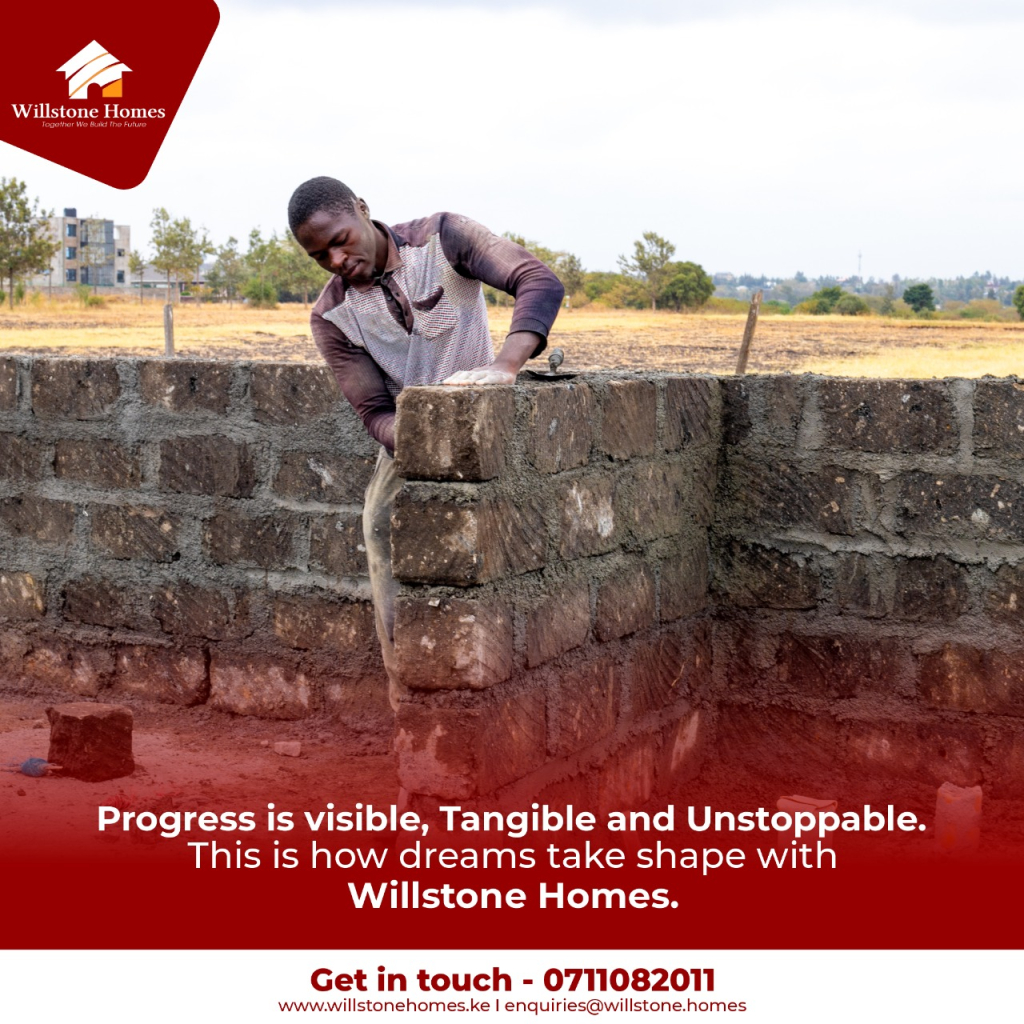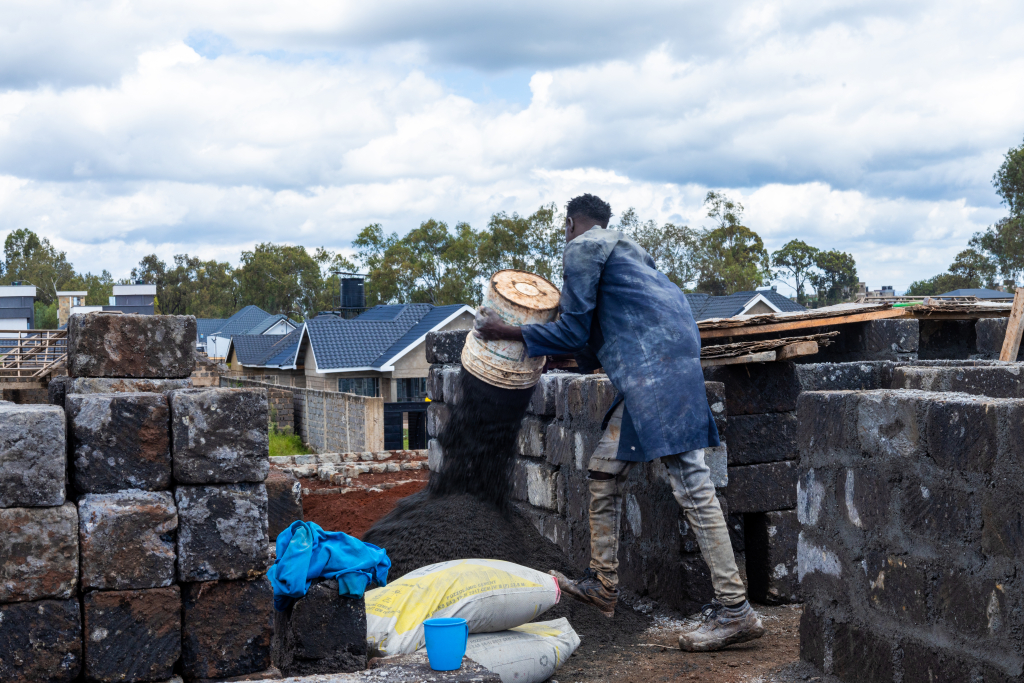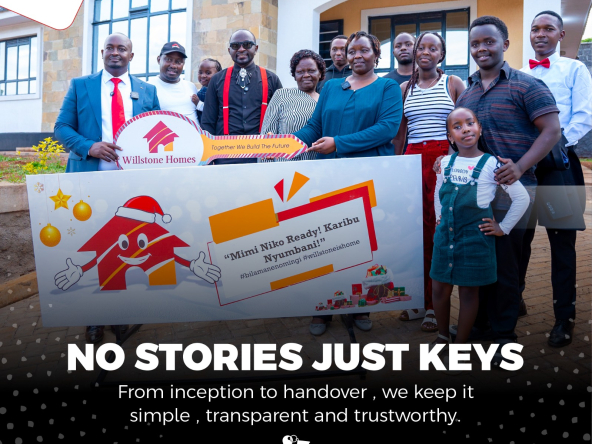In Kenya’s booming construction market, one decision separates dream homes from disaster sites — who you hire. The debate between hiring a contractor or a fundi is as old as the construction industry itself. At first glance, a fundi seems like the smarter, cheaper option. But as countless Nairobi homeowners have learned, the person you entrust with your project can determine whether you save money — or lose millions.
Contact Us
- Park Suites, 44 Parklands Road, Ground Floor, Suite 1, Willstone Homes
- +254711082011
- [email protected]
Contractor vs Fundi: What’s the Real Difference?
In simple terms, a fundi is a skilled craftsman, while a contractor is a project manager with formal systems and certifications.
| Role | Typical Background | Strengths | Limitations |
|---|---|---|---|
| Fundi | Self-taught or trained through experience | Affordable, hands-on, flexible | Lacks project coordination, may skip standards |
| Contractor | NCA-registered, works with engineers and architects | Structured, compliant, insured | Higher upfront cost |
According to the National Construction Authority (NCA), Kenya has over 35,000 registered contractors, yet nearly 60% of active sites in Nairobi still rely primarily on fundis. The difference lies in structure: fundis build from experience, while contractors build from standards.
Read Also: Willstone Homes: The Bedrock of Transformative Homeownership in Kenya
Why “Cheap” Often Becomes Expensive

The temptation of a cheaper fundi quote can be strong — especially when the difference looks like hundreds of thousands of shillings. However, what seems like savings often becomes a financial sinkhole.
A 2024 report by the Kenya National Bureau of Statistics (KNBS) found that 1 in every 5 homeowners who managed construction through fundis alone had to redo major structural elements within three years — from cracked beams to poor waterproofing.
These hidden costs — material wastage, poor supervision, and project delays — can inflate total expenses by up to 40% compared to what a licensed contractor would have charged initially.
Not All Fundis Are Bad
Let’s be clear — Kenya has exceptional fundis. Many have learned under reputable contractors and perfected their trade over years of hands-on work. In fact, in regions like Kiambu and Thika, many fundis specialize in finishing work, plumbing, and electrical installations with remarkable skill.
The issue isn’t the fundi’s ability — it’s the lack of coordination and oversight. A fundi without a clear project plan can deliver a beautiful wall but forget to waterproof it. The results? Costly repairs later.
That’s why the best projects often blend both worlds: a qualified contractor managing professional fundis.
Read Also: A Tribute to Nature: Willstone Homes Marks Mazingira Day with a Vision for a Greener Tomorrow
Common Mistakes Kenyan Homeowners Make
- Choosing by price instead of credentials.
Cheap quotes often skip safety measures or use substandard materials. - Skipping written contracts.
Many disputes in Nairobi’s Milimani and Ruiru construction sites trace back to handshake agreements. - Ignoring NCA registration.
Only contractors registered under NCA Category 1–8 are legally allowed to supervise structural builds. - Poor supervision.
Cement theft, rebar substitution, and misaligned beams happen when owners rarely visit the site. - Micromanaging without understanding construction timelines.
Constant interference can cause confusion and demotivate workers.
So, Who Should You Hire?

It depends on the size and scope of your project:
- Small projects – For a kitchen extension, a perimeter wall, or a mabati structure, a skilled fundi can do the job under supervision.
- Full houses or apartment blocks – Always use an NCA-certified contractor. They handle permits, structural integrity, and quality assurance.
Think of it this way:
A fundi can build your house.
A contractor ensures it stands the test of time — and meets legal and safety standards.
The Nairobi Reality: Urban Complexity Demands Structure
Building in Nairobi, Kiambu, or Machakos today involves complex layers — county approvals, zoning regulations, and modern design requirements. A fundi might not understand setbacks, soil testing, or drainage systems.
By contrast, a contractor ensures every beam aligns with engineering codes and every invoice matches the site work done. In neighbourhoods like Westlands and Karen, where property values average KSh 250,000 per square metre, such compliance isn’t optional — it’s essential.
Read Also: Drone Real Estate Kenya: How Aerial Imaging is Revolutionizing Property Marketing
Your Home Is Built by Choices
Construction in Kenya isn’t just about cement and steel. It’s about trust, systems, and foresight. Whether you’re building a dream home in Ruiru or developing rental units in Syokimau, your project is only as strong as the team behind it.
Before you pick your builder, ask yourself: Are you paying for skill or structure?
Because at the end of the day, a house is built twice — once on the ground, and once in your decisions.
Ready to Build Smart? Or Thinking of Owning a Home Instead?
If you’ve been managing fundis and chasing quotes, maybe it’s time to pause and think long-term. Not everyone has to go through the stress of building from scratch — especially when beautiful, ready-to-build gated communities already exist within reach.
At Willstone Homes, we provide prime serviced plots and modern gated community homes in Nairobi, Kiambu, and Machakos, designed for convenience, safety, and peace of mind.
So, in case you change your mind and decide to own a home through our affordable gated community projects or secure titled land, reach out to us today.
Contact Us
- Park Suites, 44 Parklands Road, Ground Floor, Suite 1, Willstone Homes
- +254711082011
- [email protected]





